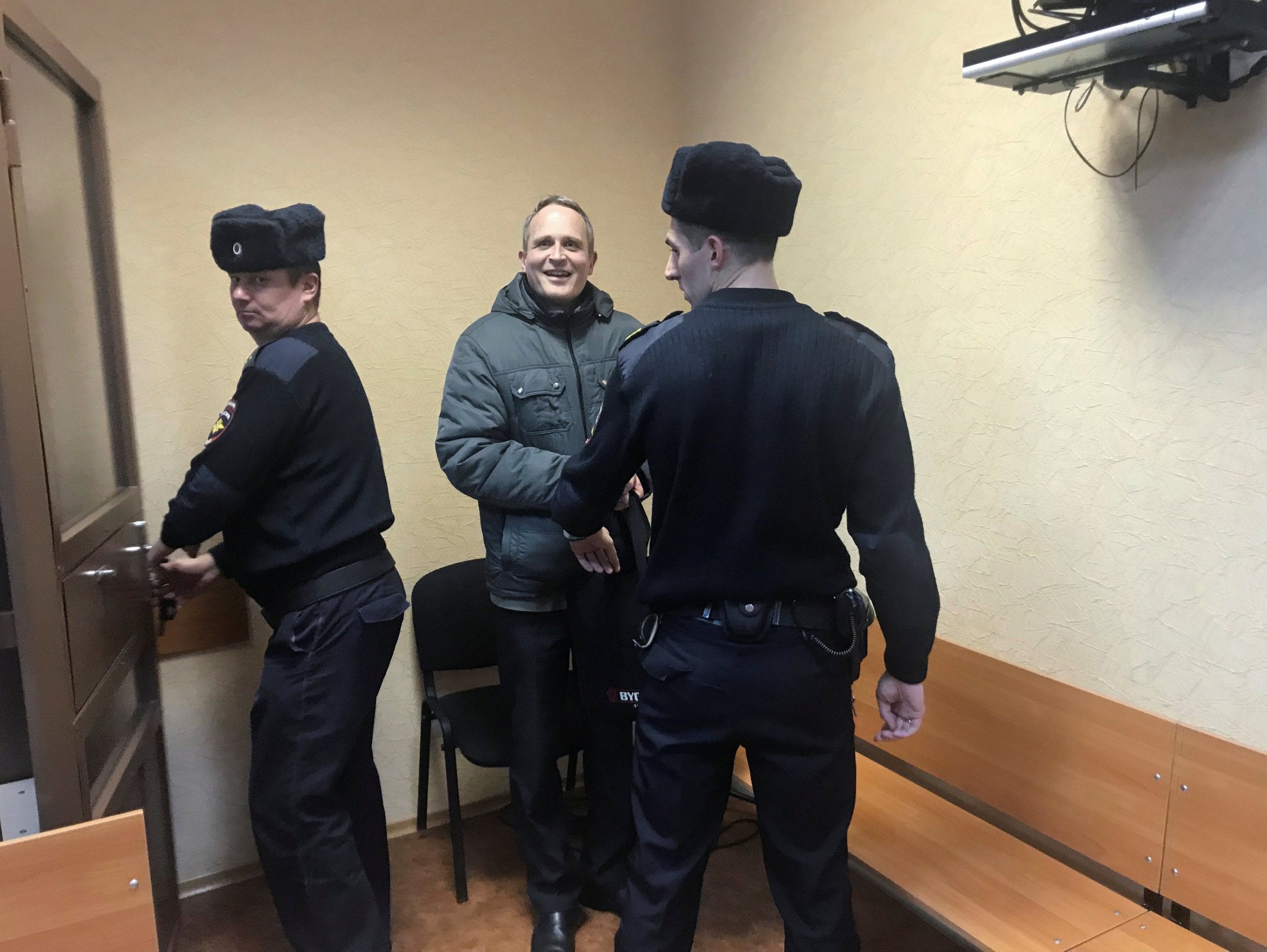Russia jails Jehovah’s Witness for six years in first prosecution under crackdown
Regional court agrees with prosecutors that Danish national guilty of 'extremist' behaviour by ignoring 2016 ban of his local group

Russia has sentenced a Danish national to six years’ imprisonment in the first prosecution of a Jehovah’s Witness since a crackdown on the fringe religious group began three years ago.
On Wednesday morning, a regional court in Oryol, western Russia, agreed with prosecutors that 46-year-old Dennis Christensen was guilty of “extremist” behaviour by ignoring a 2016 ban of his local group.
Mr Christensen had “undermined the constitutional order of Russia” by recruiting new members and agitating for the superiority of the movement over other Christian confessions, prosecutors alleged. Moreover, he had played a “central role” in organising the local group, even teaching followers the principles of “evading surveillance” by security services.
While Mr Christensen was never actually an official member of the organising committee of the Oryol group, he was the only person arrested in a dramatic raid by masked officers during a prayer meeting in May 2017.
A Jehovah’s Witness since childhood, the Danish national moved to Russia in the late 1990s. He spent some time working as a volunteer in the St Petersburg Jehovah’s Witness branch, before moving to Murmansk in the Russian far north, and then to Oryol.
In 2017, Russia’s Supreme Court agreed with the authorities’ assessment of Jehovah’s Witnesses as extremist and ruled that all Russian branches of the organisation should be closed. Amnesty International has described Mr Christensen and other Jehovah’s Witnesses arrested under the crackdown as prisoners of conscience.
Before sentencing, Mr Christensen said the charges were “absurd”, but thanked the judge for allowing him to return to prison in time for dinner.
The six-year prison sentence, while only six months short of what prosecutors asked for, was the minimum the judge could administer. Less than 0.1 per cent of trials in Russia end in acquittals.
The verdict ended hope for activists who had been encouraged by an unexpected December intervention by Vladimir Putin, who criticised “silly” extremism trials, and called for greater scrutiny.
Speaking in his daily press conference with journalists, Kremlin spokesperson Dmitry Peskov said that he was unfamiliar with the details of the case – but said he was sure there was “some” element of extremism given the eventual conviction.
Join our commenting forum
Join thought-provoking conversations, follow other Independent readers and see their replies
Comments
Bookmark popover
Removed from bookmarks